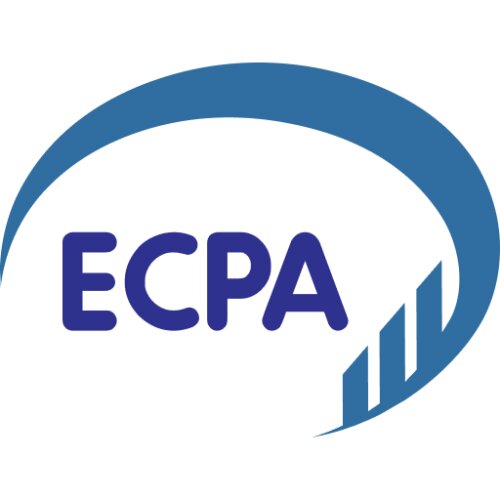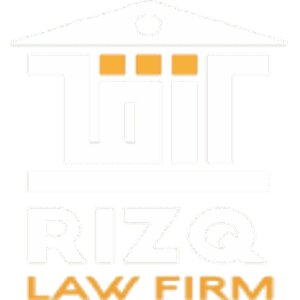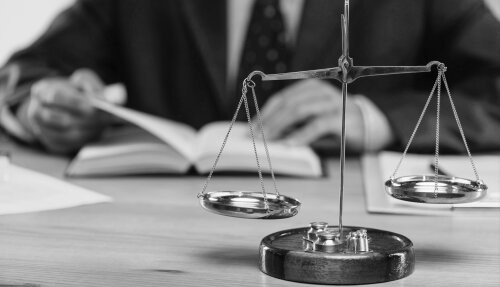Best Antitrust Lawyers in Heliopolis
Share your needs with us, get contacted by law firms.
Free. Takes 2 min.
List of the best lawyers in Heliopolis, Egypt
About Antitrust Law in Heliopolis, Egypt
Antitrust law in Heliopolis - as in the rest of Egypt - is governed by national competition rules and enforced by central authorities. Businesses and individuals operating in Heliopolis are subject to Egyptian Competition Law and related regulations. The law prohibits anti-competitive agreements, abuse of dominant position, and certain concentrations that may substantially lessen competition. Enforcement actions, merger reviews, and private claims are handled through national agencies and courts - with local businesses in Heliopolis interacting with those bodies when they do business, merge, or face investigation.
This guide explains the basic legal framework, common scenarios that require legal help, key legal concepts you should know, frequently asked questions, and practical next steps if you need assistance locally in Heliopolis.
Why You May Need a Lawyer
Antitrust issues can be complex, fact-sensitive, and high-stakes. You may need an antitrust lawyer in any of the following common situations:
- You receive a notice of investigation or a request for information from the competition authority. An experienced lawyer can coordinate responses, protect privileged material where possible, and manage interaction with investigators.
- Your business is subject to a dawn raid or unannounced inspection by competition enforcers. Immediate legal advice helps protect rights and guide staff conduct during inspections.
- You plan a merger, acquisition, joint venture, or other concentration that may require notification or approval under Egyptian law. Counsel can assess notification thresholds, prepare filings, and negotiate remedies if required.
- You face allegations of cartel conduct, price fixing, bid rigging, market allocation, or other horizontal agreements. These are among the most serious violations and often attract heavy fines - prompt legal defense is essential.
- Your firm controls a large market share and you are accused of abusing a dominant position - such as unfair pricing, refusal to deal, or tying. A lawyer can analyze market definition, dominance, and pro-competitive justifications.
- You need to create or update internal compliance programs, training, and policies to reduce antitrust risk and demonstrate good faith to regulators and courts.
- You are a private party seeking to recover damages caused by anti-competitive conduct. A lawyer can advise on civil remedies, evidence gathering, and litigation strategy.
Local Laws Overview
Key elements of the Egyptian antitrust framework relevant to Heliopolis businesses include the following:
- Legal foundation - The main statutory framework is the Egyptian Competition Law and its implementing regulations. The law sets out prohibited conduct, merger control rules, investigatory powers of the competition authority, and penalties.
- Prohibited agreements - Agreements between competitors or between suppliers and customers that restrict competition are unlawful. This covers cartels, price fixing, market sharing, output restraints, and other collusive arrangements.
- Abuse of dominance - Firms holding a dominant market position are prohibited from engaging in conduct that unfairly excludes rivals or harms competition - for example, discriminatory pricing, predatory pricing, refusal to supply, or tied sales when they have no objective justification.
- Merger control - Transactions that constitute concentrations may require prior notification and clearance if they meet thresholds set by law and regulations. The authority assesses whether a concentration would significantly impede effective competition, in particular by creating or strengthening a dominant position.
- Investigations and enforcement powers - The competition authority can open investigations, issue information requests, conduct on-site inspections, and recommend penalties or remedial measures. Companies must comply with lawful requests and inspections, subject to procedural protections.
- Penalties and remedies - Breaches can lead to administrative fines, orders to stop unlawful practices, structural or behavioral remedies, and in some cases civil liability. Repeat or severe violations may attract higher sanctions.
- Leniency and settlement procedures - Many competition regimes offer leniency for first-in confessing cartel participants and settlement mechanisms to resolve cases more quickly. Where available, these programs can reduce penalties and mitigate exposure.
- Private enforcement and civil claims - Injured parties may be able to seek damages or injunctive relief in civil courts. Private claims often run in parallel with administrative enforcement and require careful evidence collection and legal strategy.
- Interaction with sector regulators and consumer protection - Specific sectors - such as telecommunications, energy, transport, and financial services - may have additional regulatory rules. Consumer protection laws and agencies may overlap with competition concerns in conduct that harms consumers.
Because competition law is a national regime, Heliopolis businesses rely on national authorities and courts for enforcement and guidance. Local legal counsel can help interpret how national rules apply to market activities in Heliopolis and the Greater Cairo area.
Frequently Asked Questions
What counts as anti-competitive conduct in Egypt?
Anti-competitive conduct generally includes collusive agreements between competitors - such as price fixing, market allocation, and bid rigging - and abuses of dominant market position like predatory pricing or exclusionary practices. The law also covers mergers that substantially lessen competition.
Who enforces competition rules and how do I interact with them?
Competition rules are enforced by the national competition authority and implemented through administrative procedures. Investigations, information requests, and merger reviews are handled at the national level. If you receive correspondence or a notice, respond promptly and consider engaging local counsel to manage communication and protect legal rights.
What should I do if my business is visited for an unannounced inspection?
Remain calm and follow company procedures. Immediately notify senior management and legal counsel. Identify the inspectors and ask for inspection authorization. Preserve documents - do not destroy data or delete files. Cooperate within legal limits, and get legal advice quickly to manage boundaries on privilege and confidentiality.
Do I need to notify a merger or acquisition to the competition authority?
Many transactions require prior notification when they meet thresholds set by law and regulations. Even where notification is not mandatory, filing may be advisable to avoid risk. A lawyer can assess whether your transaction triggers notification requirements and prepare the necessary filings.
Can my company get leniency if it was involved in a cartel?
Leniency programs are common in competition regimes and can significantly reduce penalties for the first qualifying applicant that provides full and timely cooperation. Eligibility rules and benefits vary - consult an antitrust lawyer immediately if you believe your company can qualify, because timing and disclosure are critical.
Are individuals personally liable for antitrust violations?
Depending on the facts and legal framework, individuals such as directors, managers, or employees can face administrative or civil exposure for their role in anti-competitive conduct. In some cases, penalties or reputational harm may follow. Individual liability underscores the need for corporate compliance and prompt legal advice.
How long do investigations or merger reviews usually take?
Timeframes vary significantly with case complexity, the authoritys workload, and whether remedies or additional information are required. Some merger reviews follow a short initial review period, while full investigations or complex cartel probes can take many months. Ask counsel for expectations based on recent local practice and the specifics of your matter.
Can private parties sue for damages caused by anti-competitive conduct?
Private litigation to recover damages or obtain injunctions may be available under civil law. Bringing a private claim requires careful evidence assembly, including economic and market analysis. Legal counsel can evaluate the merits and coordinate parallel administrative and civil proceedings.
How can a business reduce antitrust risk in day-to-day operations?
Key preventive steps include implementing a clear compliance program, training employees on antitrust rules, limiting competitively sensitive exchanges with competitors, documenting commercial decisions, conducting antitrust risk reviews in contracts, and conducting antitrust due diligence in transactions.
What should I expect during contact with the competition authority - and can I appeal decisions?
You should expect formal requests for information, the possibility of inspections, and an administrative proceeding if a case is opened. Decisions by the competition authority can generally be challenged before competent administrative courts under the judicial review procedures provided by law. Consult a lawyer to understand appeal deadlines and grounds.
Additional Resources
Helpful authorities and resources to consult when dealing with antitrust matters in Heliopolis include national bodies and local professional organizations:
- The national competition authority - for guidance on enforcement priorities, procedures, and public resources on competition law.
- The Ministry of Trade and Industry - for regulatory context that may affect market rules and competition policy.
- Sector regulators - such as telecom, energy, transport, and financial regulators - when your issue involves a regulated industry.
- Consumer protection bodies - where consumer harm and competition overlap.
- Local bar associations and legal chambers in Cairo - to find qualified antitrust lawyers with experience in Egyptian competition law and experience representing clients in Heliopolis.
- Business associations and local chambers of commerce - for practical guidance and networking with peers facing similar issues.
- Academic and professional publications - for background on legal standards, case law, and economic analysis in competition matters.
Next Steps
If you believe you have an antitrust issue or have been contacted by the competition authority, take these practical next steps:
- Pause and assess - Do not destroy or alter relevant documents. Preserve emails, contracts, and contemporaneous records. Instruct staff to retain potentially relevant materials.
- Get specialist advice - Contact a lawyer experienced in Egyptian competition law and familiar with enforcement practice. Early counsel helps manage risk and shape responses.
- Gather facts - Assemble a clear chronology, contracts, communications, market data, and any documents related to the matter. This will help your lawyer evaluate options quickly.
- Consider remediation - If there is potential wrongdoing, explore internal investigations, compliance improvements, or voluntary disclosure options under counsel guidance. Timely mitigation can reduce exposure.
- Plan communications - Designate a single spokesperson for dealing with regulators and avoid informal statements. Let your counsel coordinate responses.
- For transactions - carry out antitrust due diligence early, consider pre-notification if thresholds may be met, and be ready to propose remedies if the authority raises concerns.
Competition matters are often time-sensitive and technically complex. Engaging experienced local counsel in Heliopolis or greater Cairo will help protect your legal rights, manage business disruption, and navigate the national rules that govern competition in Egypt.
Note - This guide provides general information and does not constitute legal advice. For advice tailored to your situation, consult a qualified antitrust lawyer.
Lawzana helps you find the best lawyers and law firms in Heliopolis through a curated and pre-screened list of qualified legal professionals. Our platform offers rankings and detailed profiles of attorneys and law firms, allowing you to compare based on practice areas, including Antitrust, experience, and client feedback.
Each profile includes a description of the firm's areas of practice, client reviews, team members and partners, year of establishment, spoken languages, office locations, contact information, social media presence, and any published articles or resources. Most firms on our platform speak English and are experienced in both local and international legal matters.
Get a quote from top-rated law firms in Heliopolis, Egypt — quickly, securely, and without unnecessary hassle.
Disclaimer:
The information provided on this page is for general informational purposes only and does not constitute legal advice. While we strive to ensure the accuracy and relevance of the content, legal information may change over time, and interpretations of the law can vary. You should always consult with a qualified legal professional for advice specific to your situation.
We disclaim all liability for actions taken or not taken based on the content of this page. If you believe any information is incorrect or outdated, please contact us, and we will review and update it where appropriate.











